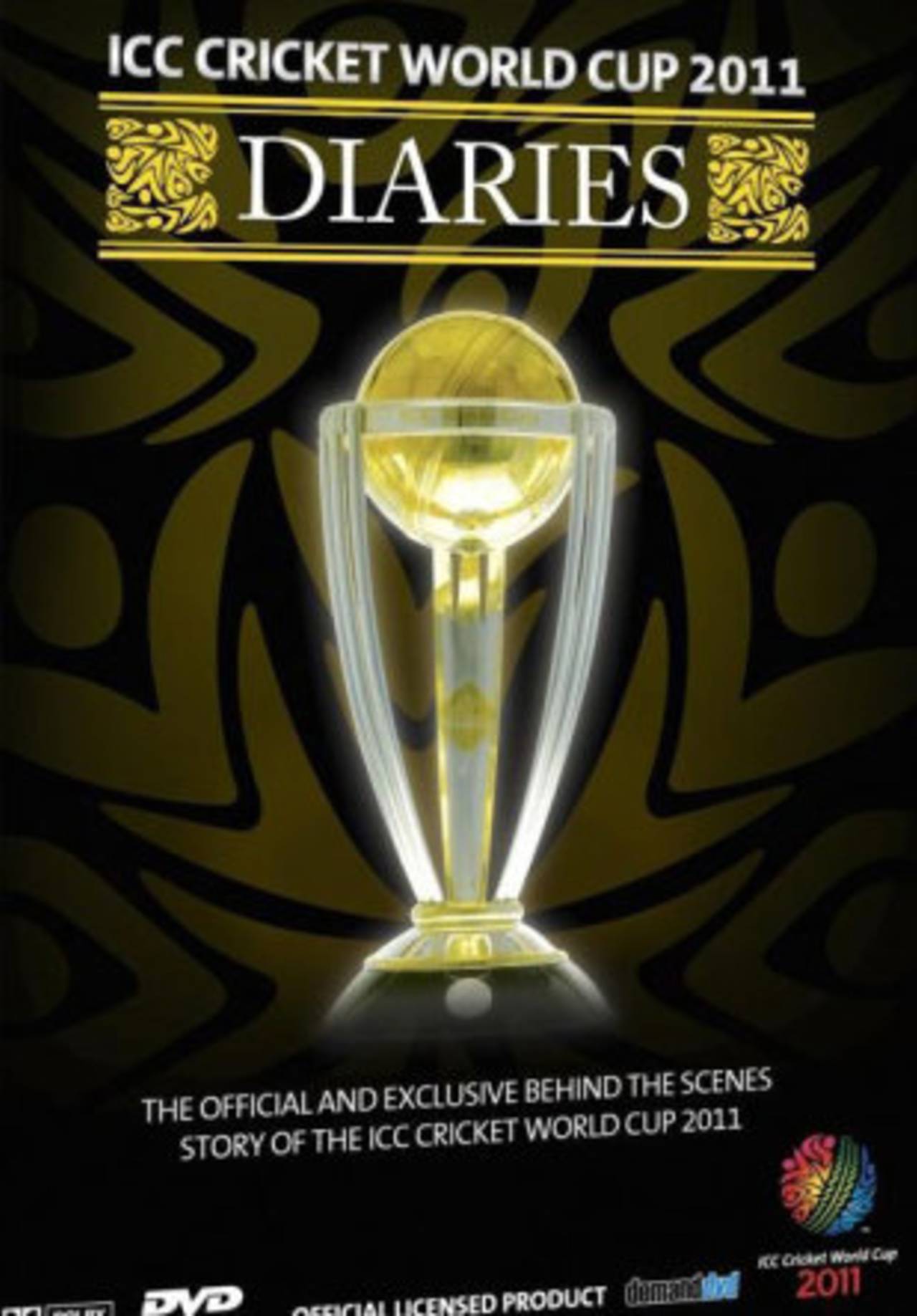Spotty jottings
This behind-the-scenes look at the 2011 World Cup is interesting, and has a good background score, but lacks a narrative
Sharda Ugra
09-Jul-2011

International Cricket Council
What are diaries meant to contain? An inside, measured look at events, people, places, with some careful finer points, and maybe even a few secrets. Turn a set of diaries into a two-hour film and they can get entangled in complications extending beyond a mere collection of words.
ICC Cricket World Cup 2011 - Diaries is a gallant first attempt at a behind-the-scenes look at the "flagship" event. The film is about two hours long, and more than compressing 49 matches in 13 venues over six weeks, it is meant to cast a fond eye over the event with a sweeping, affectionate gaze. It stops briefly at its important bits and is intended to leave the viewer with a soft-focus, feel-good sensation of what went by and is now, happily for all, trapped on DVD.
So was the venture successful? It's a start, but it's not as good as it could have been.
Before the griping, some credit. There are more than a few snatches of the World Cup's mise-en-scène, and a couple of game shots you just wish you had seen live. Limited-overs cricket is projected with an alternative background score: who would have thought the saarangi, (an instrument in Indian classic music, said to be closest to the human voice) could open and close a set of cricket diaries? Let it also be known that an acoustic guitar can lazily trace the trajectory of a six sailing into the inky sky; and that pianos can tinker and flutes ring mellifluously around games.
Diaries also caters to mass consumer interest, with a pleasant-enough portrait of the cricket circuit for fans hungry to see what the big game is like away from cameras. There's Bangladesh at their breakfast table the day before their opening match, and a quick view of England's dressing room. On the eve of opening night, Virender Sehwag walks past, the echo of his tuneful whistle lingering; and Kevin O'Brien and Yuvraj Singh let the cameras into their hotel rooms, one the day after the fastest World Cup hundred, the other before India's first knockout game.
The most memorable of these snatches is of the Kenyan batsman Maurice Ouma's meticulous preparation the night before a match against Australia. Bats, pads and helmet are lined up neatly by the wall before an hour of contemplation, visualisation, and then thinking, he says, of his wife and daughter, and what has brought him to this day.
The film's piece de resistance comes in its last quarter, featuring the World Cup final. Right at the end the camera is allowed into the Indian dressing room. A bunch of players pose for pictures with the trophy. Sachin Tendulkar, sweaty, drenched, emotionally "stoked", visibly bubbling over, manages to strings together lucid sentences. Sehwag appreciates his young son's patience at spending eight hours watching "Papa". Ashish Nehra, right hand in a monster cast, ruffles Tendulkar's son's hair with his left. Family mill around; the team's mascot, Sudhir Gautam, is given the trophy to hold.
Against the calming background score, the likes of Eminem's "Lose Yourself" and the much-glazed-over "Eye of the Tiger" by Survivor are not missed because the crowd provides the noise, and the commentators turn up for their mandatory tub-thumping and biblical pronouncements. "One of the great wins in the history of World Cup cricket" (Mark Nicholas on Pakistan v West Indies), "most amazing contest here in Premadasa" (Alan Wilkins on Sri Lanka v England), and "politicians, bureaucrats, heavyweight corporates, people from all sections of society" (Ravi Shastri describing the crowd for India v Pakistan).
The TV commentary pans out ever so often from the stadium and is taken onto the streets, playing over like radio commentary still does on urban working days. To show the subcontinent's general quietude outside pressure-cooker stadiums is a workable and noble idea, but this is where the Diaries turns into jottings, leaving empty spaces around them.
While there are many shots of people bathing, russet sunsets, street life, garbage, joyful children and loopy fans, Diaries lacks a sutradhaar - the narrator in Indian folk theatre who keeps the story tied together and moving along. The voiceover takes the viewer on a rather plain, chronological traipse through the Cup, without an on-screen, ever-present context-alert: of days, places, times, tournament phases. Why, for instance, there are random scenes from dhobi ghats in the middle of the India-Pakistan semi-final is inexplicable. The washermen, who may have been in Mumbai, were not even watching the game. Diaries may have set off to marry the cricket World Cup with a South Asian travelogue, but over most of the film, the two live together with irreconcilable differences.
While the cricket side gets better as the tournament progresses, the film's lapses show outside the ground. The final, over 32 very watchable minutes, is played out in three places: at the ground, in a pub, and an ordinary middle-class home: 10 people gathered together in a sparse living room, a few sitting on the floor, sheet spread out in front of them, with munchies at hand. We are not told who these people are, where they live, what they do other than they letting documentary-makers into their home. The stars are well covered, the public that made 2011 the Cup That Counts, not at all. Diaries lacks detailing either on the screen or in the voice.
ICC Cricket World Cup 2011 - Diaries
Sony Pictures
120 min; $24.99

Sony Pictures
120 min; $24.99
Sharda Ugra is senior editor at ESPNcricinfo